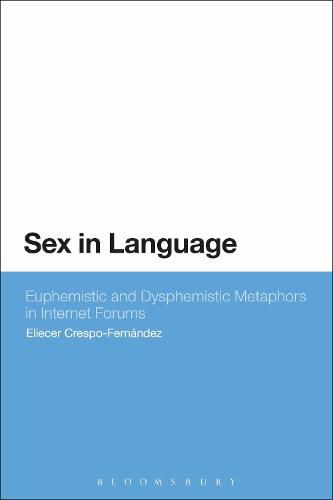Readings Newsletter
Become a Readings Member to make your shopping experience even easier.
Sign in or sign up for free!
You’re not far away from qualifying for FREE standard shipping within Australia
You’ve qualified for FREE standard shipping within Australia
The cart is loading…






Metaphor has long provided a rich way to speak about the unspeakable, to refer to delicate issues. Sex is one such area. This book follows a cognitive-linguistic and relevance-theoretic approach to the language of sex, considering metaphor as a bridge that brings together mind and language. It does this through the analysis of the antithetical mechanisms of verbal mitigation and offence. These two mechanisms are (more commonly know as) euphemism and (its lesser known companion term) dysphemism.
The volume reflects on the social and communicative functions that sexual metaphors perform in a sample of almost two hundred postings taken from internet forums. How do people think about sex? How do people avoid talking about sex? How do people paraphrase sexual topics? It offers an account of how real language users understand sexual taboo in present-day English and also a great grounding in manual corpus work on a qualitative level.
$9.00 standard shipping within Australia
FREE standard shipping within Australia for orders over $100.00
Express & International shipping calculated at checkout
Metaphor has long provided a rich way to speak about the unspeakable, to refer to delicate issues. Sex is one such area. This book follows a cognitive-linguistic and relevance-theoretic approach to the language of sex, considering metaphor as a bridge that brings together mind and language. It does this through the analysis of the antithetical mechanisms of verbal mitigation and offence. These two mechanisms are (more commonly know as) euphemism and (its lesser known companion term) dysphemism.
The volume reflects on the social and communicative functions that sexual metaphors perform in a sample of almost two hundred postings taken from internet forums. How do people think about sex? How do people avoid talking about sex? How do people paraphrase sexual topics? It offers an account of how real language users understand sexual taboo in present-day English and also a great grounding in manual corpus work on a qualitative level.